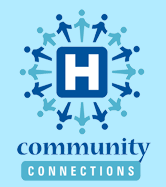 hospitalconnect.com
hospitalconnect.com


The ACHI Community Health Assessment Toolkit is a guide for planning, leading and using community health needs assessments to better understand—and ultimately improve—the health of communities. It presents a suggested assessment framework from beginning to end in six steps, and provides practical guidance drawn from experienced professionals and a variety of proven tools.
The ACHI Community Health Assessment Toolkit includes:
Community health needs assessment is both the activity and product of identifying and prioritizing a community's health needs, accomplished through the collection and analysis of data, including input from community stakeholders. It can be used to inform the development of strategies and plans to address prioritized needs, with the goal of contributing to improvements in the community's health.
Community health needs assessment methods and characteristics can vary according to the size and nature of the community, the lead organization or partners and their goals, the resources available and other local factors.
Write to with general questions, suggestions or feedback about the Toolkit.
Acknowledgements
The Association for Community Health Improvement is grateful for the perspectives, tools, and experiences provided by the 2006-2007 Community Health Assessment Work Group, the 2010-2011 Community Health Assessment Work Group, and for funding from the American Hospital Association.

The ACHI Community Health Assessment Toolkit is available to paid members of these groups:
Members of these groups can log in with their Web site ID and password, in the upper right corner of this page.
Not a member? Learn about ACHI's benefits and join here.
ACHI members: Write to or call for log-in assistance.
AHA members: Write to or call .
Other members: Write to the membership services contact for your group to receive log-in assistance.

